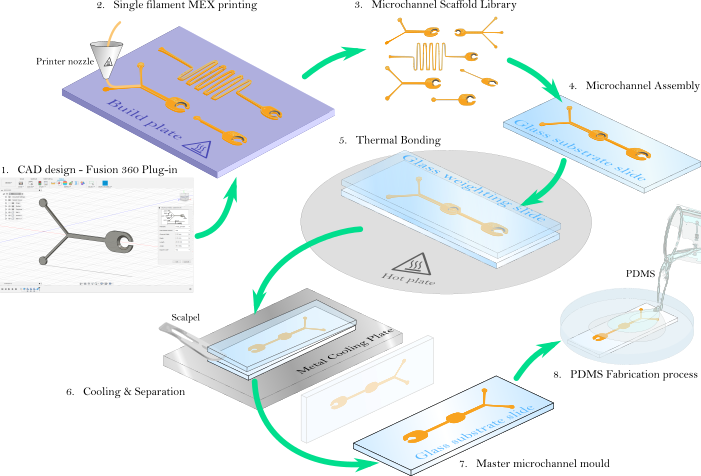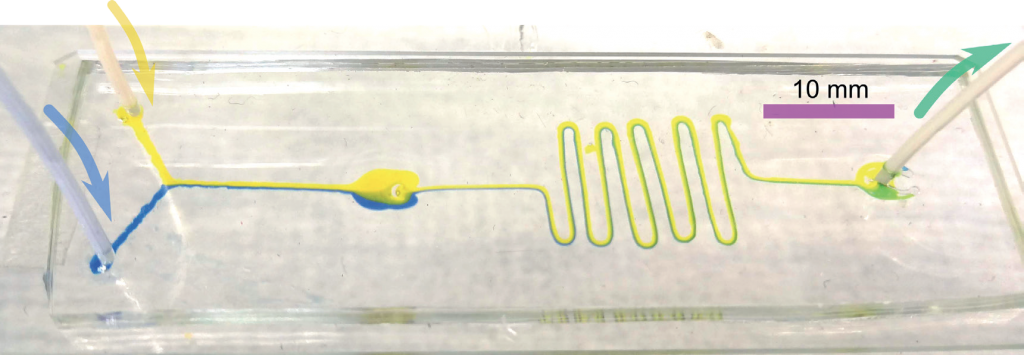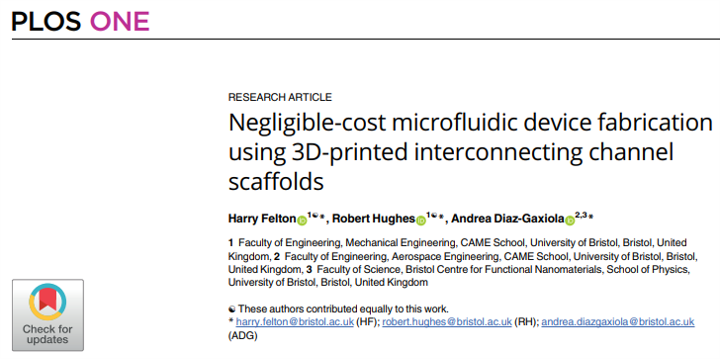Negligible-cost microfluidic device fabrication using 3D-printed interconnecting channel scaffolds
Available open access via PLOS One: https://journals.plos.org/plosone/article?id=10.1371/journal.pone.0245206
Harry, Robert Hughes and Andrea Diaz Gaxiola have together published work that demonstrates a fabrication method to produce negligible-cost microfluidic devices that can be combined using a system of inter-connecting joints.
The method uses 3D printed scaffolds – produced on standard desktop printers – PDMS and other equipment generally available in a household or palce of work. This breakthrough means fabrication of microfluidic devices – with widths roughly that of a human hair – is now possible rapdily, reliably and cost-effectively to promote rapid uptake and development for on-chip diagnostic techniques. It is hoped that this will significatnly benefit those in areas of the world where low-cost, rapid diagnoses are needed to improve public health and mortality, as well as in education.
Along with the method, a toolkit of designs and 3D print profiles have been developed to reduce the barrier of entry to the technology further. These are available as supporting information to the PLOS One paper, as well as our GitHub.

The negligible-cost microfluidic device fabrication method using 3D printed scaffolds (source: Felton, Hughes and Diaz Gaxiola, 2020)
The 3D printed scaffolds that for the foundation for the microfluidic device moulds are printed on standard desktop printers – in the instance of the paper, Ultimaker 3 Extendeds. Two channel sizes were printed across 5 different designs – 350 μm using the standard 0.4 mm nozzle and 100 μm using a 0.1 mm nozzle and core from 3D Solex.
The devices have been demonstrated for use as both fluid mixers (see below) and droplet generators using both channel widths, providing promising results for both applications.

An interconnecting channel fabricated using the method described herein demonstrating fluid mixing (source: Felton, Hughes and Diaz Gaxiola, 2020)
We are now looking to identify potential collaborators in research and education settings to help further develop the technology and provide further evidence to demonstrate the effectiveness. We are also happy to support outreach opportunities where we can. If you feel this might be appropriate for you, please don’t hesitate in contacting any of the authors via their pages linked above, or directly using harry.felton@bristol.ac.uk or robert.hughes@bristol.ac.uk.


One thought on “New Publication in PLOS ONE – 3D Printing Negligible-cost Microfluidics”
Way cool! Some very valid points! I appreciate you penning this write-up plus the rest of the site is very good. Kenny Leist